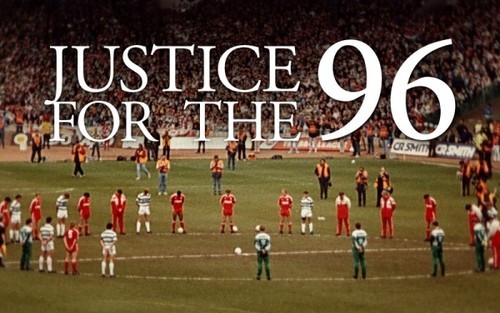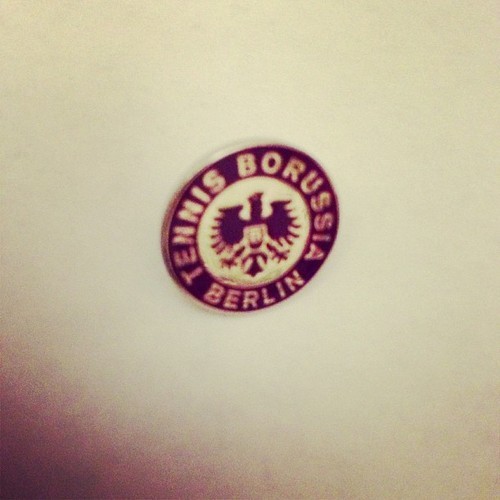On Spontaneity in a Universal Sport, and the week that was
On Spontaneity in a Universal Sport, and the week that was


By Jordan Brown
In the flawed, but truly engaging drama Another Happy Day, Ezra Miller’s wonderfully screwed up young Elliot sits down for breakfast with his Grandmother—Ellen Burstyn—and in contemplation of their family’s issues states, “If we came down here for a funeral instead of a wedding, we might actually all be getting along. Now it begs the question, ‘What does that mean?’ And the only conclusion I’ve been able to come to is that death is actually a more unifying force within a family than love. Now that’s a mindblowing concept.” The Elliot in the film has known nothing but years of tense relations and family drama—a young man caught in the tidal cycle of family fault and recrimination, and it has turned him into a cynic. Ellen Burstyn, in her response, springs his trap, “Well now, Elliot,” she says, “perhaps it’s just the way you were brought up.” The scene closes with Elliot’s wry response, “I am myself and my circumstances.”
The banner headline early in this week of football was the emotional release of the independent Hillsborough investigation’s findings. The true causes of the tragic death of 96 fans in Sheffield were released, and a remarkable step towards vindicating the memories of those lost in the disaster was taken. The footballing community was united in its support and condolence to the city of Liverpool. My time spent on Twitter and Facebook scrolling through media and fan reactions proved that in the long and terrible grief of those affected, we were all tied—the outpouring camaraderie was powerful—if not unique. Miller’s character touched on what is a fundamental truth of human nature: we are united in tragedy.
Sir Alex Ferguson’s letter to the Manchester United fans, a strong case for rivalry as natural but never personal in enmity, was timely and well-said. The praise of its release prior to today’s Liverpool vs. Manchester United match was universal—as it should’ve been. Attempting, as I was, an ocean away and a generation apart from the significant moment that the Hillsborough represents in global football, I found myself wondering if we’re about to miss an incredible opportunity—a watershed moment where we realize what was truly on offer for us this week amongst all the emotion and muted tribalism.
This evening I shared Hofbrau beer and currywurst with a man named Jens visiting from Berlin, we broke the utterly Germanic bread in Chicago’s Wicker Park neighborhood. I didn’t know Jens prior to today’s meal. The meeting was a sort of football-fan blind-date, initiated by family friends back in Michigan, “We’ve got a guy staying here with us from Germany, and we know you’re into all that soccer stuff, so we thought it would be nice for you two to meet up and talk while he’s visiting the city!” So we did, stumbling about at first, exchanging courtesies and form questions—where are you from, what did you study, how do you like America—and then in proper blasphemy towards the Steelers vs. Raiders game everyone else in Uberstein was there to see, we began to talk football.

The ease at which we fell into the conversation there onwards was remarkable—like meeting someone you once knew at summer camp, we talked for four hours, drawing on the collective memories of favorite games and players, style preferences, and major headlines from the past year. We discussed the noteworthy skill America has of breeding Goalkeepers, and Germany’s noteworthy wealth of insane Goalkeepers. We talked Denmark’s Euro win, and how regrettable it was Michael Laudrup missed it, and how it was akin to Cruyff’s absence at World Cup ’78. He told me about Berlin’s football history, Hertha and FC Union—how during separation, West Germans would root for Union from the east, an underdog rival to the Stasi-supported Dynamo Berlin.
I showed Jens my writing, which he found curious and funny, and when we left to go our separate ways, Jens gave me the pin from the club he supports, Tennis Borussia Berlin—a sixth division club from the city. In about two litres and four hours we left the bar understanding more about each other and our countries, our families and upbringings, spurred chiefly by our shared love of a game.
On the walk home, I thought about how strange and wonderful the meeting was in context of the week. Anti-American riots burned on through the Mid-east, Africa, and Asia, spurred by the old grudges of Islam and Christianity. China erupted with reaction to Japan’s claim on islands in the East China Sea, a tired and partisan election continued in my own country—two parties at odds for nearly a century barking the old lines back and forth. Here among all that, in the world of my little hobby—my beautiful game—two storied enemies left their feuding words at home, forgot past handshakes and harsh tones, and played a pretty good game of football.
This week taught us that the wrong thing is always available to say. Old offences are always lying about, so close beneath our feet. My dinner was fraught with rancorous potential—between bites of currywurst we might have hashed out two wars, firebombed cities, misplaced nationalism, and a half-century of general hostility. The opportunity was always on the table for a spiteful Amerikaner and perhaps an ironically Fergie-esque ‘Typical Germans’, but we spent our time instead engrossed by a common love rather than inherited hate.
There will always be room for banter—Twitter seems built to uniquely serve that purpose—but all interactions are built on choices, the diverting paths of any dialogue rooted in that first branch: will we be civil? Recognizing that we’re all here in appreciation of the same thing—the inspired move and the divine golazo—our assembled tribes need not be warring states. I know this comes down to a fundamental question which far more intelligent minds have put to paper, a Hobbes-Mills ‘state of nature’ debate; are we, deep down, noble savages or just merely savages? Whichever we are, all the week’s events offer us a positive choice: if we be noble, let us choose to act so—if we be savage, let us be noble in spite of it.
In Another Happy Day Elliot reveals that the closest he ever felt to his family was directly after the monumental week of 9/11, “It was like some strange, intangible nexus unveiled itself for a moment. And, I know it’s still there—that’s not what I’m saying—I guess it just feels weird that it takes tragedy to bring it out.” Like this one, every week of news offers up inch by column inch of human suffering, tragedies on scales great and small that happen to people with lives not so different from ours, in places not so truly different from wherever we are. Elliot may have been playing the cynic, but that doesn’t make his observation any less true—as human family, tragedy does bring us closer together; we just seem to forget that closeness too soon after. Wherever all the Facebook statuses and tweets go as they pass through our feeds, I hope this week’s don’t go there forgotten. Naivety or not, I hope that next week we remember just how close we are when looking through the magnified lens of football.
- “Years have gone by and I’ve finally learned to accept myself for who I am: a beggar for good football. I go about the world, hands outstretched, and in the stadiums I plead: ‘A pretty move, for the love of God.’ And when good football happens, I give thanks for the miracle and I don’t give a damn which team or country performs it.“ -Eduardo Galeano
This piece was written by Jordan Brown, who is a senior writer for AFR. You should really follow him on Twitter @JordanSig. Comments below please.







